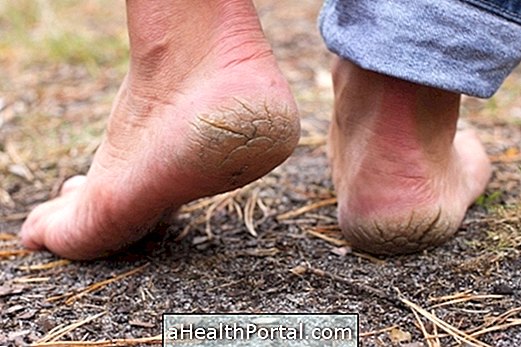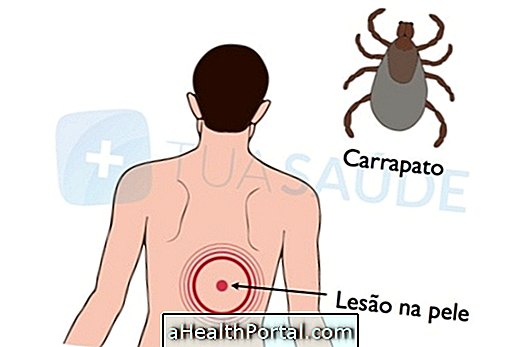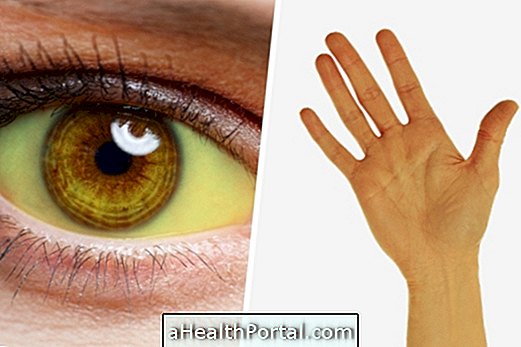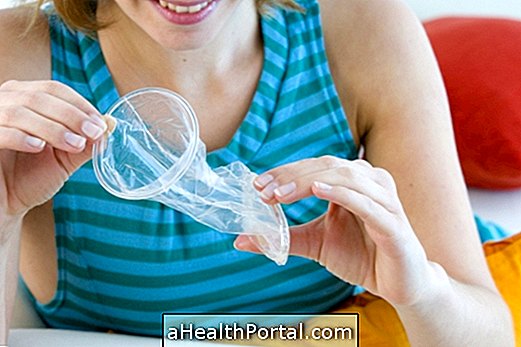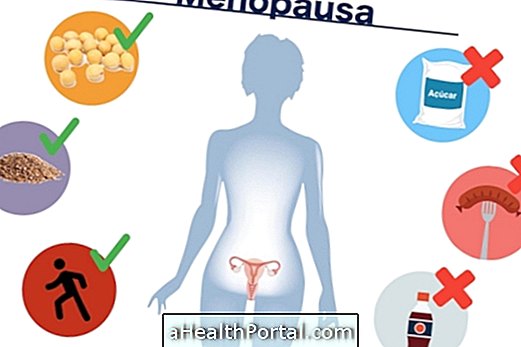The Ebola virus that causes Ebola Hemorrhagic Fever is a serious disease with a high mortality rate.
The virus is transmitted through contact with blood, vomit, urine, feces and secretions of the infected person or through the consumption of meat from infected animals such as fruit bats and 'game meat'.
Learn how to prevent Ebola virus in: What to do not to catch Ebola.
Ebola causes symptoms such as high fever, vomiting and diarrhea with progression to internal bleeding and multiple organ failure. This disease has not yet been cured, nor a specific vaccine, being more frequent in Africa due to their customs, beliefs, eating habits and also due to the weak health system of these countries.
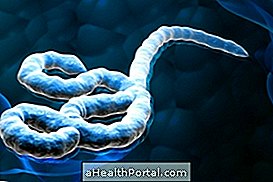

Symptoms of Ebola virus
First symptoms
The first symptoms of the Ebola virus can take from 2 to 21 days to appear after the contamination and include:
- Fever above 38.3 ° C;
- Numbness;
- Sore throat;
- Cough;
- Excessive tiredness and
- Severe headaches.
Subsequent symptoms
After 1 week symptoms may get worse:
- Vomiting (which may contain blood);
- Diarrhea (which may contain blood);
- Sore throat;
- Bleeding that leads to bleeding through the nose, ear, mouth or intimate region;
- Blood spots or blisters on the skin;
- Brain changes and possible coma.
Read more about how to identify all symptoms of Ebola in: Symptoms of Ebola
How the Ebola virus is transmitted
Transmission of the Ebola virus occurs through direct contact with any body fluid such as blood, saliva, vomit, urine, feces, semen or vaginal secretion of infected persons, even after death. Manipulating or ingesting meat from infected animals is also a form of Ebola transmission.
Individuals most at risk of being infected with Ebola are the closest relatives of those infected, such as parents, children and spouses, as well as health professionals such as doctors and nurses who are in direct contact with these patients. However anyone who is in contact with the secretions of an infected can get sick.
Measures to Prevent Ebola Virus
The Ebola virus prevention measures are:
- Wash hands with soap and water several times a day;
- Stay away from the sick with Ebola and also from those killed by Ebola because they too can transmit the disease;
- Do not eat 'game meat' and bats because they may be contaminated with the virus because they are natural reservoirs;
- Do not touch the body fluids of an infected person, such as blood, vomit, stool or diarrhea, urine, cough secretions and sneezing, and intimate parts;
- Wear gloves, rubber clothing and face mask when coming in contact with a contaminated person, not touching this person and disinfect all this material after use;
- Burn all the clothes of the person who died because of Ebola.
Since infection with Ebola can take up to 21 days to be discovered, during an Ebola outbreak it is advisable to avoid traveling to the affected sites as well as places bordering these countries. Another measure that may be useful is to avoid crowded public places because people do not always know who may be infected and transmission of the virus is easy.
What to do if you become sick with Ebola
What is recommended to do in case of infection by Ebola is to keep everyone away and to seek a treatment center as soon as possible because the sooner the treatment is started, the greater the chances of recovery. Take special care with your vomiting and diarrhea.
How to treat Ebola
The treatment for Ebola virus is to keep the patient hydrated and fed, but there is no specific treatment that is able to cure Ebola. Infected patients are kept in isolation in the hospital to maintain hydration and control infections that may arise, reduce vomiting and also to prevent transmission of the disease to others.
Researchers are studying how to create a medicine that can cure Ebola and also a vaccine that can prevent Ebola, but despite scientific advances, they have not yet been approved for use in humans.
Learn more about Ebola at:
- Symptoms of Ebola virus
- How Ebola came about


